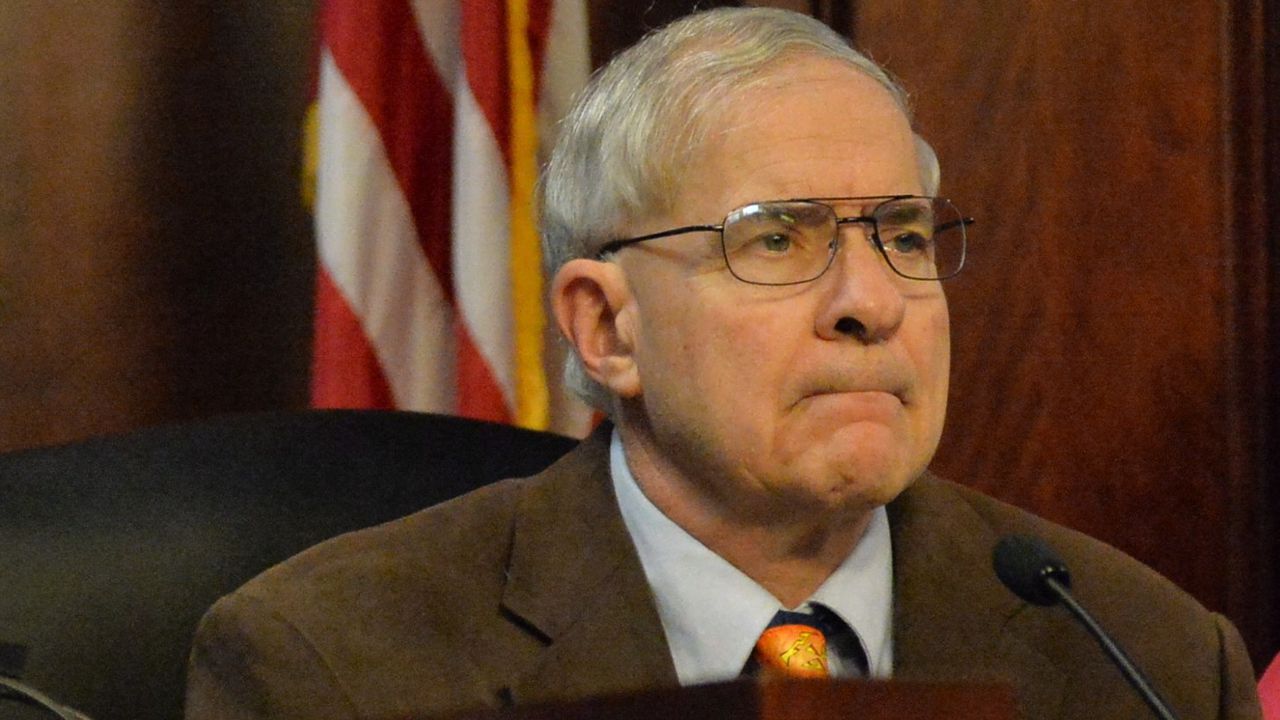As Huntsville moves to increase water rate, another hike may be on the horizon
When Huntsville City Councilman Bill Kling recently met with residents in his district, a discussion about a big hike in water rates quickly pivoted to questions about a potential rate increase for garbage pickup the city is considering to make up for a deficit in that department.
“What about the Garbage rate study,” an elderly man asked several minutes into the discussion about the City’s proposed 35% water rate increase.
“Don’t even go there,” an elderly woman responded at the library meeting.
“No, we can go there,” Kling said at the Aug. 21 District 4 meeting at the Huntsville-Madison County Public Library.
And he did.
On May 11, the City Council approved $62,000 for Virginia-based solid waste management consulting company Gershman, Brickner & Bratton, Inc. to conduct a rate study towards “designing new solid waste rates.”
Their work includes gathering information on solid waste rates from different cities in the state, with Auburn, Phenix, and Tuscaloosa as examples. Auburn and Phenix have a base rate of $23.50 and $18.50 monthly, respectively. Tuscaloosa has a tiered rate, with $5.25 per month for the first cart and $25.35 for each additional cart. Huntsville’s base rate is $16.50 per month.
After matching the cost of service to revenue from rates, the company will give a five-year projection and design a “multi-year rate adjustment plan that will achieve the enterprise fund’s revenue requirement, and meet the City’s rate-making policy objectives.”
The enterprise fund comprises entities the City wants to run as businesses, focusing on being self-funded or for management accountability purposes, like the sewer system, the Von Braun Center, the Benton H. Wilcox Municipal Ice Complex, and Orion Amphitheater.
In its 2022 financial report released in July, the city, in a departure from the past, separated the sanitation fund from the fund for the day-to-day running of the municipality, called the general fund. They placed it with the enterprise fund. The sanitation fund encompasses garbage and bulk yard collection services.
City administrator John Hamilton said the change is a long-overdue move to enhance transparency in an interview with Al.com in his office on Aug. 18.
“Our desire to move it in the enterprise fund is really just a budgeting mechanism,” he said.
“It’s really about transparency,” he added. “It’s about making certain that we have segregated those revenues that are coming in specifically from those fees and have a transparent way of showing how they’re budgeted, how they are dedicated to that service so that there’s not an appearance that they are commingled with other funds and used for other purposes.”
The sanitation fund is in the red, posting a $4.9 million loss for the year, the 2022 financial report revealed.
Sanitation charges totaled $14.1 million, but the operational expenses were $1.9 million more.
The City provided an additional $2.2 million from the capital improvement fund for more garbage trucks to service the fast-growing city. The amount of garbage and bulk yard collection has also continued to rise, increasing from 482 tons per day in 2021 to 629 tons per day in 2022, a 30% increase in one year, the largest in the last ten years.
Inflationary trends might cause the City to increase the rate, but a move to make the sanitation fund self-funding like the sewage system won’t happen immediately, John Hamilton told Al.com. But it’s not off the table.
“We are not bringing forward any fee changes,” he said. “Obviously, over time, we’re always having to look at those things–inflation has impacts on things, and so it’s incumbent on us to always be looking at those.”
“And we—right now—we have some consultants really doing some studies for us to look at efficiencies inside of the department and things,” he added.
The rate study had an anticipated timespan of 14-18 weeks, culminating this month. It is unclear why there was no presentation of rate adjustment scenarios to the council, though the initial schedule had that for July ending.
It’s been at least 20-25 years since the last rate increase, City Communications Director Kelly Shrimsher told Al.com.
Kling would like to keep the rate the same, he told the group gathered at the library.
“I would wonder why—with all the growth that we’re having—our city government revenues are coming in property tax appraisal, again, that’s coming from the county, but we still, we get some property taxes, and of course, sales tax is booming, but with all that, do we need a garbage rate increase?” he said.
“Now, they say garbage rate, it’s an enterprise, it’s a separate account, they want to run it like a business. Well, the government’s not exactly a business; y’all are paying for local government, and I don’t have any problem with us subsidizing or continuing to subsidize garbage rates to keep the level of service that we’ve got already without having to raise the rates.”
“I would say especially, in one way, shape, or form, there’s probably going to be some type of utility water rate increase. I don’t know what form, how much, and everything like that, but assuming that, we can assume there’s going to be some type of rate increase,” Kling said. “Okay, they’re going to do that, and then the city’s going to come back and say, ‘Alright, now that we got you for water, now we’re going to come get you for garbage.’”
